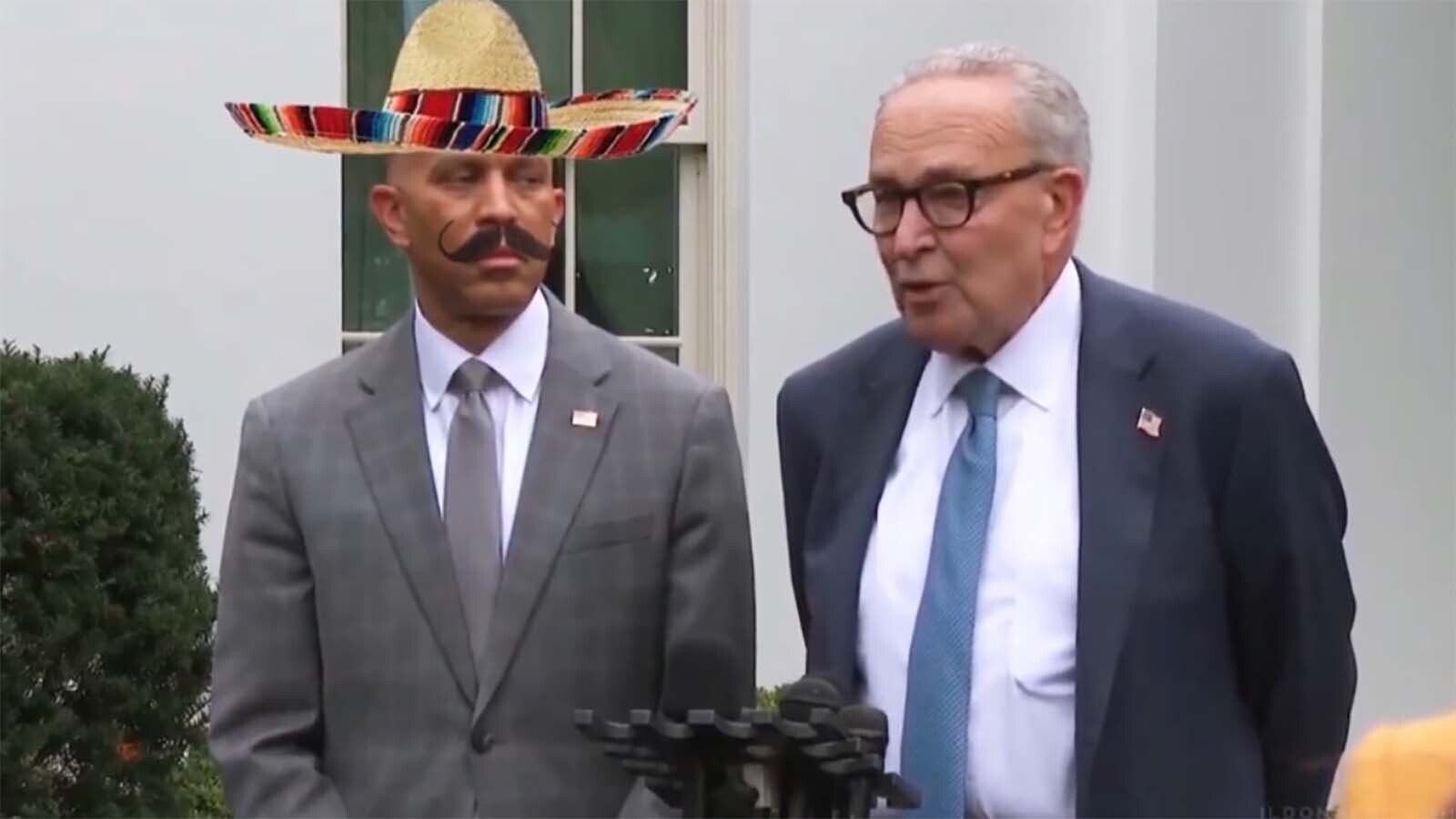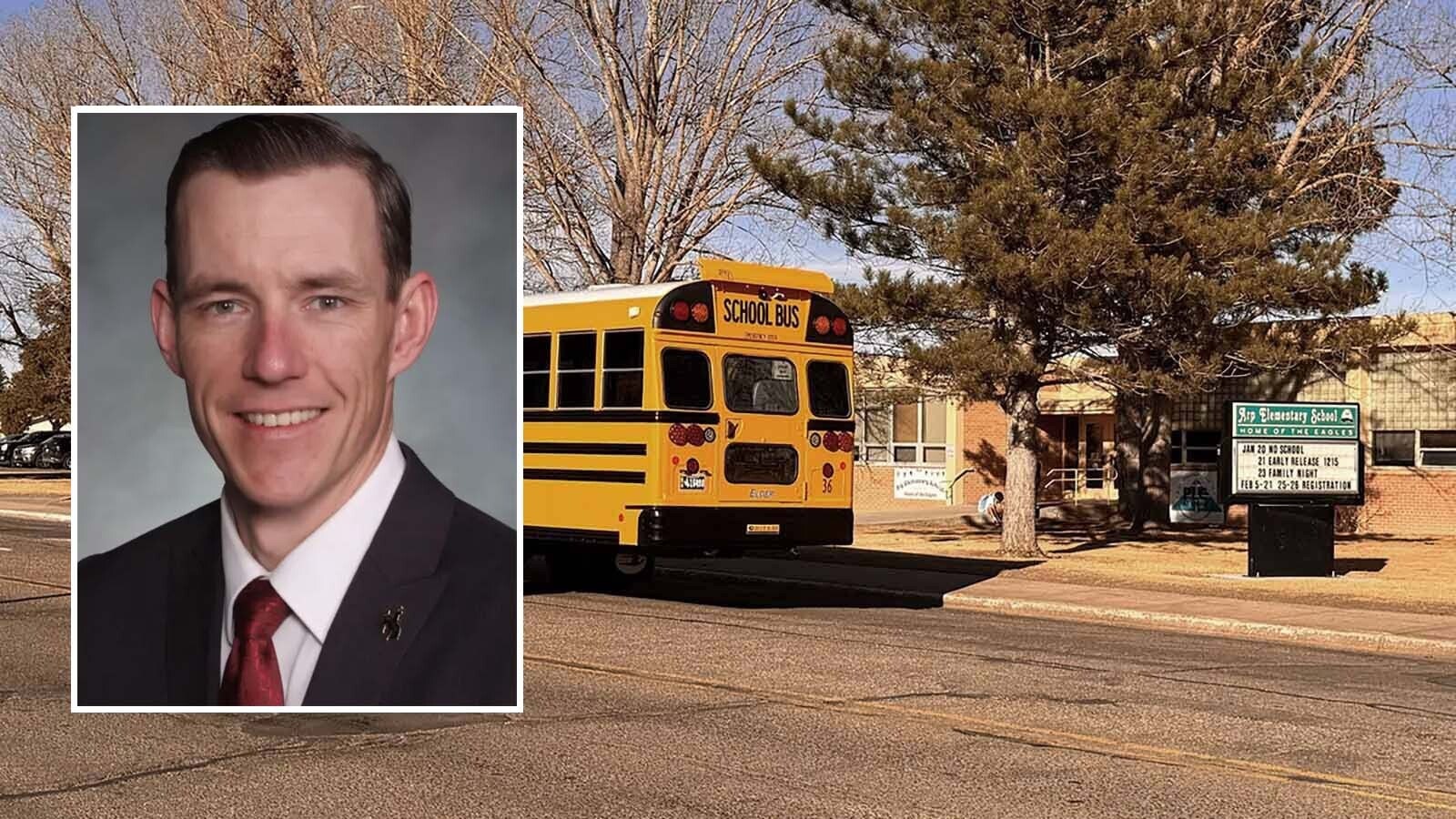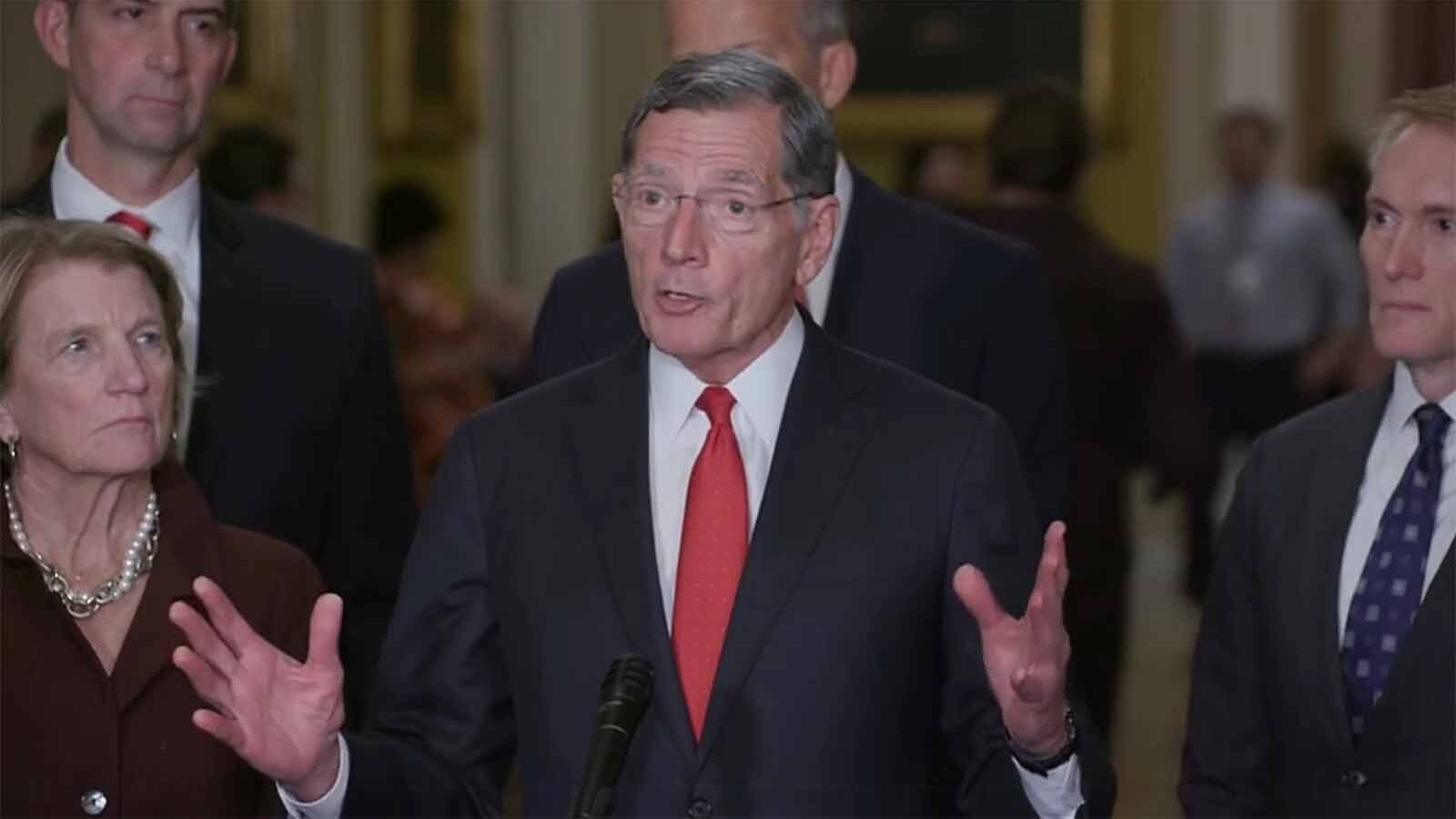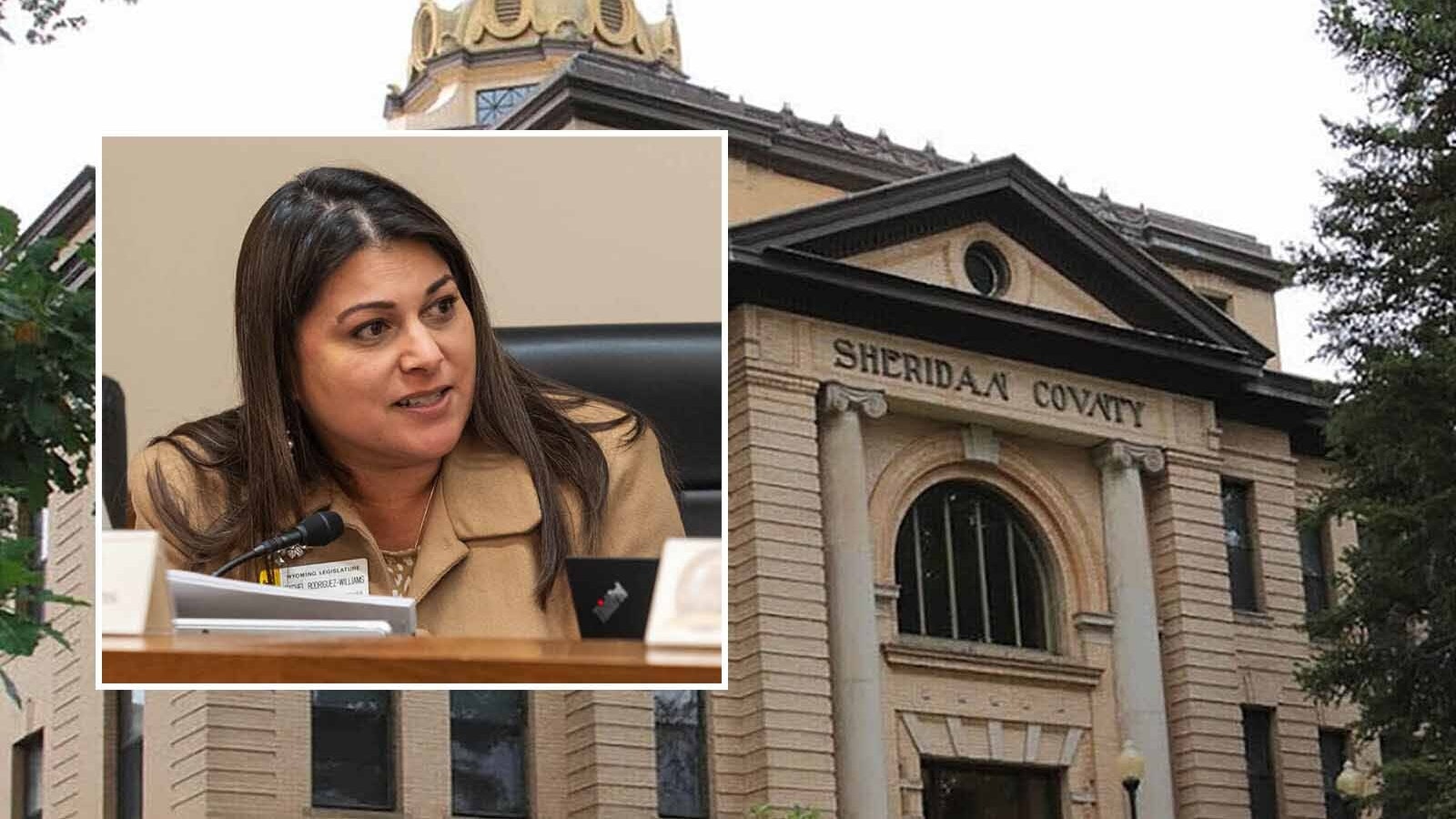Despite the slow churn of government bureaucracy, Cody woman Michelle Hart has reason to be optimistic about the federal legislation developed in honor of her firefighter husband.
Hart is the widow of wildland firefighter Tim Hart, who passed away while fighting a fire in New Mexico the spring of 2021. In her late husband’s honor, Hart helped craft federal legislation known as “Tim’s Act,” in 2021, a bill that, if passed, would give better pay and other benefits to wildland firefighters.
Although the bill hasn’t made any visible progress since last November, Hart said there have been countless conversations taking place behind the scenes promoting the bill and its purpose.
“We’re making sure what we can put in place is a real fix,” Hart said.
In a commercial released Thursday morning, Hart issued an endorsement for U.S. Rep. Liz Cheney, who she said has worked with her on and supported the legislation.
“I know Liz on a personal level and she’s an amazing woman,” Hart told Cowboy State Daily. “The way she speaks, she doesn’t back down. I couldn’t think about endorsing anyone else.”
Cheney is seeking election to a fourth term as Wyoming’s representative and faces several challengers in the GOP primary for the office, including Harriet Hageman and military veteran Denton Knapp.
Hart met with Cheney in Washington, D.C., just weeks after her husband died as the result of injuries he suffered while parachuting in to a New Mexico wildfire.
Hart said Cheney was genuinely shocked when Hart told her the harsh conditions wildland firefighters work under.
“She really wanted to do something about that. Those words were followed up by action,” Hart said in the commercial.
Cheney is one of 13 cosponsors on the bill and the only Republican.
“For Liz to step up made me so happy,” Hart said. “We had an allegiance from there on.”
The bipartisan legislation aims to implement reforms many in the firefighting community say are sorely needed to support their workforce, a group of emergency responders often sidelined because of their seasonal work cycles and whose firefighting seasons are being stretched longer and longer due to more frequent firefighters.
“Really putting pressure on these legislators to be able to do something to fix these issues that are really critical to public safety,” Hart said in the commercial. “I look forward to getting to work with (Cheney) until these issues are resolved and I know I have her commitment in doing that.”
Under President Joe Biden’s Infrastructure Investment and Jobs Act passed last November, these firefighters were set to receive an increase in annual pay of $20,000 or 50 percent of their base pay, whichever is less.
Hart called this piece of the legislation “a huge win” that she helped indirectly influence.
The problem is that this raise is only a one-time supplement scheduled to last for only two years. If this supplementary salary is adjusted at some point in the next two years, firefighters will face a cut in their pay, which will have the largest impact on new firefighters starting their jobs under the higher rate.
The money was supposed to be doled out in May, but Hart said the uncertain future is causing hesitation within the U.S. Forest Service Office.
She said this department and the powerful Office of Personnel Management are working on a way to raise base salaries or revert to an old pay scale used decades ago so that there is no drop in pay two years from now. Hart said many in the firefighting community oppose reverting to the old pay scale.
Hart said members of the wildland firefighter community are “incredibly frustrated” with the pay raise delay.
“All these firefighters thought they were going to get raises,” Hart said. “They’re already having a hard time getting them to come back each year, morale is already bad.”
U.S. Forest Service Chief Randy Moore took questions from U.S. Senate Committee on Energy and Natural Resources last week on the topic.
U.S. Sen. John Barrasso made an impassioned plea for Moore to do something to get the raises in place.
“Years of low pay, a host of other issues, have significantly depleted the federal firefighting workforce,” Barrasso said. “As the wildfire season gets longer and more intense by the year, we simply can’t afford to do without these brave defenders of our forest and surrounding communities.”
Sen. Angus King, D-Maine, was less polite.
“Eisenhower retook Europe in 11 months?” King said. “You can’t do a pay raise in seven months? Come on.”
Moore said the goal is for the pay raise to be disbursed by the end of June.
Moore told the committee he has 10,184 firefighters on board for this season, a number he said is not enough to effectively slow the spread of a very large, “catastrophic” fire.
Forest firefighters leave their families for weeks on end, often working 16-hour shifts in extreme and hazardous conditions and sleeping on the ground.
According to Grassroots Wildland Firefighters, recent studies showed firefighters commit suicide at a rate 30 times higher than the national average and have a 30% higher risk for cardiovascular diseases and a 43% increased risk for lung cancer.
On the bright side, changes brought on by the Forest Service and OPM discussions could achieve individual pieces of the Tim’s Act legislation, which centers around increasing pay and classification benefits for wildland firefighters.
“I would love to see OPM do it the right way,” Hart said.
If passed, Tim’s Act would raise federal wildland firefighter pay to at least $20 an hour, increase annual pay to at least $20,000 per season and provide health care and mental health services to temporary and permanent wildland firefighters, among other benefits.
Hart said the introduction of Tim’s Act alone has sparked valuable conversations that will pave the way for improved wildland firefighter benefits, regardless of whether the legislation passes.
“It’s about building a coalition and strategy for needed reforms,” she said.





